Independent retailers currently have a huge opportunity to increase their soft drinks sales as the credit crunch, poor weather and smoking ban incite consumers to ditch the pub and entertain at home.
With the all-important festive season fast approaching, now is the time for retailers to really start focusing on the soft drinks sector, which grew by 4.4% in the four weeks to December 29, 2007 to clock up £119m in sales out of an annual £6.07bn for the sector.
Despite the economic climate, premium options are expected to perform well in the coming few months as consumers source more upmarket non-alcoholic solutions for the party season. And they’ll have plenty of options to choose from this year after a frenetic few months of new product launches, range extensions and rebrands by the UK’s top manufacturers.
Stylish glass bottles have been the uniform of choice for a battalion of brands in the past six months.
Appletiser launched Fruitiser in the format earlier this year. The range consists of three fruit juice combinations and is presented in elegant glass bottles perfect for dinner parties.
Exotic juice brand Rubicon has also recently added a 300ml premium glass bottle format for its best-selling ranges, while chart-topping water brand Evian has linked up with fashion designer Jean Paul Gaultier to create the design of its new limited-edition bottle.
Feel Good Drinks has also recently expanded its sparkling offering with a white grape & peach flavour in 50ml glass bottles.
The Vimto brand also kept its finger on the innovation pulse this year when it produced a limited- edition earthenware bottle containing the original cordial. The launch was designed to celebrate its centenary.
However, while premium party offerings will be top of the pops this year, retailers shouldn’t forget about their core soft drinks ranges, says Britvic sales director Andrew Richards.
“Retailers should ensure that they stock a wide range of top-sellers and look at further opportunities to drive spend in-store through multibuy deals and cross-category merchandising,” he says.
Britvic added an apple & blueberry flavour to its range of J20 drinks in February and plans to run an on-pack promotion giving consumers the chance to win tickets to see comedian Jimmy Carr perform this Christmas.
The festive season is also a key time for the mixers category and Coca-Cola Enterprises (CCE) is hoping to profit after launching the Schweppes Classics range earlier this year. To encourage further incremental sales in 2008, Schweppes Winter Lemonade is now available and CCE recommends merchandising it along with other lemonades to add interest, and alongside 2ltr bottles to encourage trial.
And shoppers are guaranteed to be shaken and stirred now that Coke Zero is an official partner of the box office smash hit James Bond Quantum of Solace. The CCE campaign includes an on-pack promotion which will give consumers the chance to win a free downloadable Quantum of Solace demo computer game four weeks ahead of its release. Consumers will also be entered into a free daily draw to win prizes including Bond-style weekends away and Sony gadgets.
Red Bull has also had a busy year, and is expecting sales to take off this festive season as consumers look to the energy drinks sector to keep them partying all night long. Last Christmas value sales of Red Bull increased by 14.5% (AC Nielsen four weeks to December 29, 2007) compared with 2006.
Boost Drinks is also hoping to profit from the success of the energy drinks sector with the introduction of a new glucose drink, Boost Active. The sparkling glucose drink, packaged with a striking orange and black distinctive design, is based on a formula that allows faster absorption of sugar into the body and brain.
Good health
Consumer demand for healthier soft drinks remains at an all time high, and is expected to continue to shape innovation in the category for years to come.
Ocean Spray UK business development manager Jonathan Duffin believes that the growth in healthy drinks is being fuelled by a number of factors. “With growing awareness of the benefits of an antioxidant-rich diet, consumers are attracted to drinks that are packed with natural goodness and at the same time deliver on taste and refreshment.
“Added to that is the general trend towards no added sugar or light drinks and natural ingredients, and with rising obesity levels in the UK there is growing pressure on manufacturers and retailers to respond to consumer demands for more healthy drinks,” he says.
Ocean Spray has recently replaced its low-sugar range of cranberry juice drinks with a no added sugar range, making it even lighter at just 20 calories per 250ml.
“Consumers are actively looking for products to enhance their health and wellness and to postpone or avoid diseases. And the fact that about 80% of consumers avoid going to the doctor represents a massive opportunity for functional food brands,” he adds.
GSK developed Ribena 100% Pure Juices in response to this trend earlier this year. The drinks come in two berry flavours - blackcurrant blend and raspberry & blackberry blend - and each 250ml serving contributes to one of the five portions of fruit and vegetables recommended to be consumed each day.
Rubicon also relaunched its packaging design to better highlight the nutritional benefits of its superfruit drinks earlier this year, while juice brand Pomegreat jazzed up its range of pomegranate drinks with the launch of a pomegranate ruby orange variant. The popularity of pomegranate drinks is growing in size and currently worth £33.7m, according to IRI figures from August 2008.
However, consumers are now ready for the next big thing, says Anita Doran, managing director of the Hibiscus Drinks Company which produces the Hib! juice brand, made from the hibiscus flower. And she is keen to remind retailers that small is not only beautiful, but can also be profitable.
“Retailers shouldn’t forget the smaller players in the healthy soft drinks market. While the power brands are important when rationalising your range of soft drinks, don’t overlook the potential for smaller, premium-priced brands that will reflect well on the image of your store and offer the growing number of health-conscious consumers an alternative to carbonates or regular juices.
“Choose your range carefully; just one or two smaller brands should suffice as long as you rotate them regularly and weed out the slow sellers,” she adds.
One company that’s making waves in the healthy drinks market is James White Drinks, which has recently launched organic beetroot juice Heartbeet. The company’s managing director Lawrence Mallinson says that sales of the product have increased by almost 1,000% following the publication of research by St Barts and the London Hospital which demonstrated that drinking beetroot juice can dramatically reduce blood pressure.
So how is the demand for healthy soft drinks expected to shape the category in years to come?
Deborah Carter, senior consultant at brand consultancy Dragon, believes that demand is likely to kickstart innovation in the bottled water category. “There are likely to be more enhanced or functional waters, especially since consumers recognise the extra benefits over and above those of plain water,” she says. In particular, retailers can expect to see an increase in the number of ‘beauty waters’ and waters which offer ‘slimming’ potential,” she says.
Kiddie consumption
Nowhere is the demand for better- for-you products higher than in the highly competitive kids’ soft drinks market.
High sugar and less healthy drinks now face much tighter restrictions on how they can be marketed to children, and schools must now follow strict guidelines about the types of products that they can offer to their pupils. As a result, the UK’s soft drinks companies have been working overtime to create new drinks to keep parents, teachers and kids happy.
According to the British Dietetic Association children should consume only slightly less water than the recommended eight glasses of water a day for adults. It also stresses that while there are some advantages of drinking tap water, especially for the cost-conscious, there are a whole variety of benefits provided by drinking bottled water including taste, extra vitamins and minerals and, of course, convenience when out and about.
As a result, industry experts believe that the kids’ bottled water market could be the next big opportunity in convenience retailing.
According to Highland Spring’s latest guide to the UK bottled water market, the South and London have the highest proportion of kids’ drinking bottled water at 72% and 71% respectively, followed by the East of England at 66%.
Earlier this year, Britvic launched a nationwide experiential campaign to encourage children to try its flavoured water brand, Fruit Shoot H2O, running at cinemas, theme parks and zoos.
Calypso is also doing its bit to increase kids’ bottled water sales with a new High School Musical 3 Senior Year-branded flavoured natural mineral water.
The new drinks contain natural fruit flavours blended with mineral water from the company’s own approved source in North Wales. They have been launched in four- packs of 350ml bottles, featuring two fruit flavour varieties, with no added sugar.
Naturalness will also continue to drive innovation in the kids’ juice market, points out Dragon’s Carter.
Last month Metro Drinks launched a new version of its Juice Patrol brand - orange & mango juice - containing 51% natural fruit juice and natural spring water.
Feel Good Drinks has also recently added Feel Good Kids, a fruity range of 100% natural drinks. “One of the really important factors for mum is healthy ingredients and an accessible price point,” says Dave Wallwork, managing director and co-founder of the Feel Good Drinks Company. “Another important point is waste - mums don’t want to buy drinks that their kids don’t like and won’t finish, so it’s important that they meet kids’ needs with flavour combinations they enjoy.”
A brand that kids definitely enjoy is Fanta, which has recently been reformulated with no artificial flavours or colours. Available from October 1, new Fanta also features fresh new packaging highlighting its real juice, no artificial flavours and no artificial colours credentials.
Milking the profits
After several years of growth, the dairy drinks category fell by 3% in 2007 to £379m in the take-home sector. Flavoured milk was the only sector to buck the trend, maintaining 7% value growth overall to account for one-third of the sub-category (Britvic Soft Drinks Report).
However, Campina UK managing director John Lee believes that many retailers are missing out on the valuable opportunity of flavoured milk.
“As a category, it’s about a quarter of the size of water, but often has only two or three facings, usually sold out, compared with metres of water and every conceivable flavour of carbonated drink, much of it simply sitting there gathering dust,” he says. “Flavoured milk is growing fast and meets impulse shoppers’ needs in lots of ways, so make room for milkshakes.”
Keep it real
Packed full of calcium and vitamins, flavoured milk products also answer the growing consumer demand for healthier options.
And this November number-one flavoured milk brand Yazoo plans to get even healthier by introducing an improved recipe containing natural flavours and real fruit juice.
The brand is also renewing its packaging design to reflect its more natural composition and is introducing a new chilled 300ml impulse offering.
Mars Consumer Drinks is also hoping to milk more profits from the category with a series of improvements to its chocolate-milk based drinks.
From November, Mars Refuel and Galaxy drinks will change from a 310ml bottle to 388ml, to give a longer drink.
Mars Refuel has also been spruced up with a new and improved recipe containing no artificial colours or flavours. The fat content has also been reduced from 2% to 1.5%.
The Galaxy drink also benefits from a recipe change, now containing real Galaxy chocolate.
Meanwhile, two Welsh dairy farmers are hoping to take the yogurt drink sector by storm. Will Prichard and Jamie Adams of Will and Jamie’s Fresh Yogurt Drinks claim to be the only producers in the sector to have full control of the drinks ‘from grass to glass’.
The drinks are being rolled out to independent retailers in South Wales and come in mango & ginger, seasonal fruits and blueberry. “With our £1.39 price tag for a 250ml bottle compared with an average of £1.99 from our competitors, the drinks also offer value for money,” they say.

















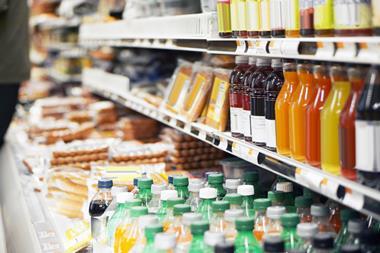

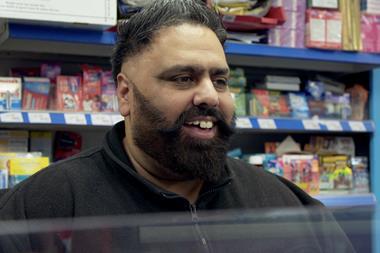
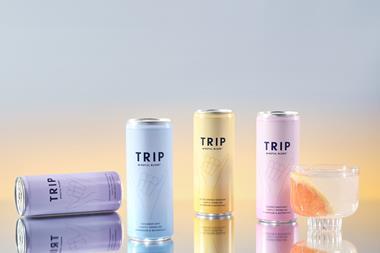

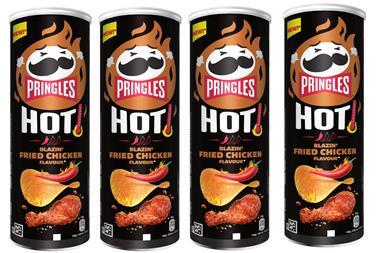
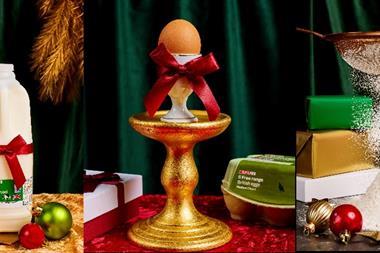
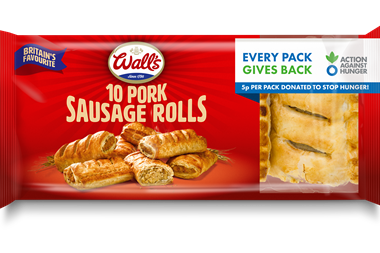
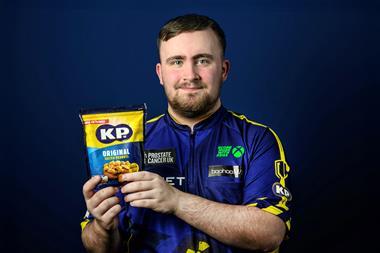
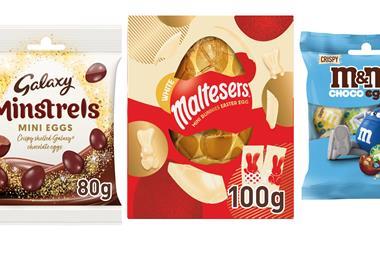
No comments yet